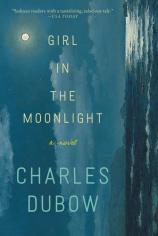Reading Group Guide
Discussion Questions
Girl in the Moonlight

1. GIRL IN THE MOONLIGHT opens with an air of times long past --- the selling of a family home following a father’s death, the rekindling of memories and opening of old wounds. How does this scene set the mood for the rest of the novel? Does the epilogue match the mood of the prologue? If not, what has changed?
2. Why do you think Charles Dubow chose to introduce Cesca and Aurelio by way of a portrait? What does it add to their mystique? How did your initial impressions of these characters evolve throughout the book?
3. In the prologue, Wylie ruminates about his life and the choices he’s made. He says, “The secret, they say, is not to regret --- but that, I have found, is impossible. The most one can hope for is to forget. Memory, though, is a poor servant. It bursts in on you when you least expect it.” What do you make of that quote? Do you think it’s possible to live life without regret? Is forgetting an easier substitute? How does this quote play out in the lives of Wylie, Cesca and Aurelio?
4. Like Dubow’s debut novel, INDISCRETION, GIRL IN THE MOONLIGHT chronicles the lives of the fabulously rich and dashingly beautiful.The story is set mostly in the Hamptons, and the characters are all used to a sort of privilege --- exquisite vacations, glorious garden parties, impossibly good-looking friends and lovers. Does it make you like the characters more or less?
5. In Chapter 7, Wylie thinks: “We can never really know another person. A couple can be married for decades and still keep their secrets. The long years before they met. Childhood. Other lovers. Then there are the small things, things not quite remembered, the banal… All the myriad events and encounters that shape our lives. These are what make us.” What does that statement mean to you? If you are in a long-term relationship, do you keep secrets from your partner? Do you think it’s natural for people to keep secrets? Beneficial? Why or why not? Do you think any less of Wylie when he doesn’t tell Kate the whole truth about his relationship with Cesca?
6. Cesca tells Wylie that her policy is never to apologize or give an explanation for her actions. Is this admirably confident or incredibly selfish? Do you think this approach serves her in life? Or does it lead to her destruction?
7. Cesca’s unplanned pregnancy is a tricky conundrum. She wants to get rid of the baby. Her beau at the time wants to keep it and get married. In the end, Cesca doesn’t leave the topic open for discussion and has an abortion. Does she have a right to make the decision on her own? What would you have done if you were in her shoes? Or his?
8. Dubow writes, “The success of a friend runs two ways. It can cause jealousy or it can inspire.” This is true throughout the book, especially in Aurelio and Wylie’s friendship. What is it about the temperament of these two characters that renders this type of relationship possible? What’s missing in Wylie’s relationship with Cosmo and Carmen?
9. Towards the middle of the novel, Wylie and his father are discussing Cesca’s family. Wylie’s father says, “They’re beautiful, talented, rich. It’s all very seductive. But they’re like spoiled children. They’ll take everything and give nothing in return.” Do you think this is an accurate assessment? Does Aurelio fit into that category? Why or why not?
10. Cesca is an extraordinarily sensual character. Not only is she comfortable with her nakedness but she’s also quite aware of the power her body has over men and women and uses it to get what she wants. Would you describe her as confident or insecure, or a mixture of both? Does her beauty prevent her from having “real” experiences or lasting relationships?
11. Wylie and Cesca keep coming back to each other, which could either be read as incredibly romantic or ridiculously selfish. How do you see it? Is it the same for each character? Why or why not?
12. Dubow writes, “There is a monstrous selfishness about love…especially in its primal stages, when nothing else matters, when lovers create an artificial world which only they inhabit. The language, the customs, the currency, are known to them alone, and no one else is permitted inside. It is a form of bliss but also a kind of corruption. Everything else is forgotten. Food, friends, work, responsibilities, all become subsumed by obsession.” Have you ever experienced this type of love in your life? Was Wylie’s experience with Cesca similar to yours? Or how was it different? How is this type of love different from lust and can lust last?
13. Toward the end of the book, Cesca says to Wylie, “You can love two people at the same time, but you can’t be in love with two people at the same time. It doesn’t work like that.” Do you agree? Why or why not? Then she tells him it’s time for him to grow up and “be a man.” What do you think she means by that? Does growing up mean choosing one person to love?
14. Cesca threw herself fully into whatever her whim was at the time --- love, sex, drugs, traveling. In contrast, Wylie played it safe for much of his life. Both Cesca and Aurelio lived passionately and met tragic deaths. Wylie presumably lived into old age. Who do you think had the better life? The healthier outlook?
15. In the epilogue, an older Wylie clears out the rest of his father’s attic and leaves for the last time. There is some ambiguity as to whether or not he threw out the nude portrait Aurelio painted of Cesca. Do you think he kept it or chucked it into the dumpster? What would you have done if you were in his shoes?
Girl in the Moonlight
- Publication Date: May 3, 2016
- Genres: Fiction
- Paperback: 352 pages
- Publisher: William Morrow Paperbacks
- ISBN-10: 0062358332
- ISBN-13: 9780062358332








